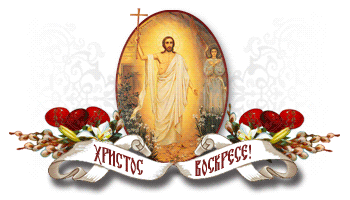The Spiritual Root of Schism
The root, as ever, is pride, lack of humility. The passion of condemning others makes hearts swell in self-admiration at supposed self-righteousness and even, in the imagination, holiness. This means that, rather than seek out qualities in others, the schismatic seeks out their faults. Quite often the logic is to find someone in the Church, if possible a member of the clergy, and the more senior the better, who has said or done something obviously wrong and then conclude: ‘I cannot accept the discipline of being in communion with ‘them’ (= the millions of people in that Church) because one person in their Church is wrong. If I am in communion with them, then my own pure faith will be stained and I will be contaminated. Therefore, I will belong to another group, which will be a new Church, and so I will remain pure’. In this way the devil deludes his victims into thinking that their group alone is pure, virtuous and righteous. This is pure pride, for none of us is pure, virtuous and righteous.
If Christ could tolerate Judas among the Twelve, who are we to complain about the eccentric opinions of some erring intellectual? All this becomes the sin of self-delusion, for it is reinforced with self-justification. This is why it is impossible to reason with them, for any disagreement is interpreted as a personal affront. Sadly, self-justification may lead to gossip and slander and the use of dreams or false prophecies in order to cover egoistic passions and ignorance: ‘St X told me this, therefore I am right’. ‘St X appeared to me in a dream and told me this’. (And through diabolical self-flattery, they are not only right but also holy, for did not St X justify them and were they not so worthy that St X even appeared to them – and to them alone?). Thus is revealed an exclusive revelation, a dream based on imagination, which is in fact only self-flattery, the mocking of the demons.
This in turn can lead the victims of these passions to cut themselves off from communion with others, ironically, with the accusation that others have cut themselves off from communion with them. To cut oneself off from communion with others in the same Orthodox Church is to say that the others’ sacraments are somehow defective and do not communicate grace. This is a rejection of the Body of Christ – of the Church. This is the definition of schism. This is precisely that same pride which then causes its victims to cut off communion with one another, to split into numerous sects, parties, factions, ‘isms’ and argumentativeness. This is the spirit, which always seeks to find fault in others, to criticise the good intentions of others and constantly to change ‘jurisdiction’.
In this way, the words ‘Church’ and Christ’ are replaced by the names of leaders, often the names of individual bishops. ‘I am of Paul: and I of Apollos; and I of Cephas’ (I Cor 1, 12). Then accusations, recriminations, insults and argumentativeness begin and bring death to the soul, for the soul can only thrive on peace and the catholicity (sobornost) of the Church: ‘In peace let us pray to the Lord’. (There is no prayer without peace). ‘For the peace from on high and the salvation of our souls, let us pray to the Lord’. (There is no salvation for the soul without peace). ‘For the peace of the whole world, the good estate of the holy churches of God, and the union of all, let us pray to the Lord’. (We pray for the whole world and, in catholicity, for all the holy Churches of God (Greek, Russian, Serbian, Georgian, Cypriot, Bulgarian, Romanian...) and the unity of all people, not just for a tiny sectarian corner).
Schismatics like to justify themselves by claiming that they alone follow the canons strictly (akrivos) and they alone struggle for purity and piety. This in fact is only self-justification. In the same way, the Jews condemned Christ because He healed on the Sabbath. Only they followed the law (the canons), which they quoted in detail, only they were righteous. But such righteousness is the righteousness of the pharisee, of the letter of the law, not of grace. And the spirit of the pharisee is always destructive and negative, always accompanied by unjust insult, slander, jealousy and hatred, even the crucifixion of its victims. However, all this can be made up for and forgiven by the abandonment of self-justification and the return to obedience, which is called repentance. Those who sadden Mother-Church by falling away from Her always gladden Mother-Church by returning to Her.
http://www.orthodoxengland.org.uk/tempright.htm

